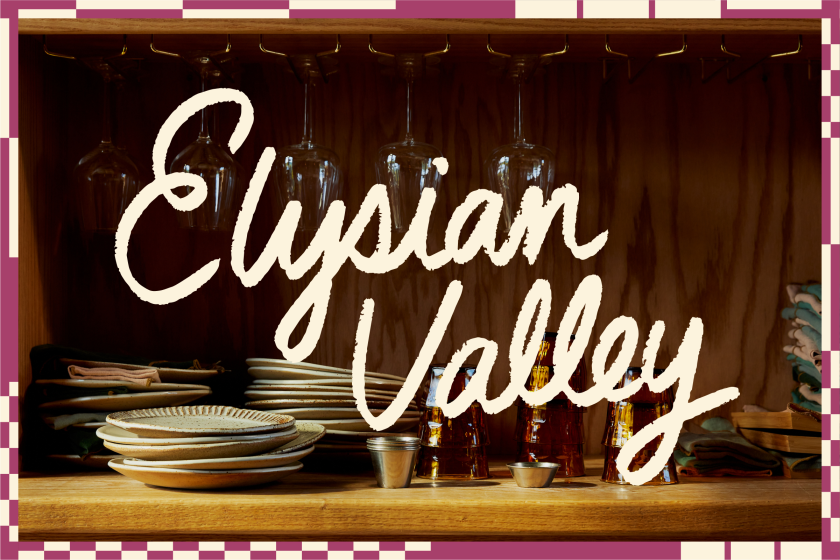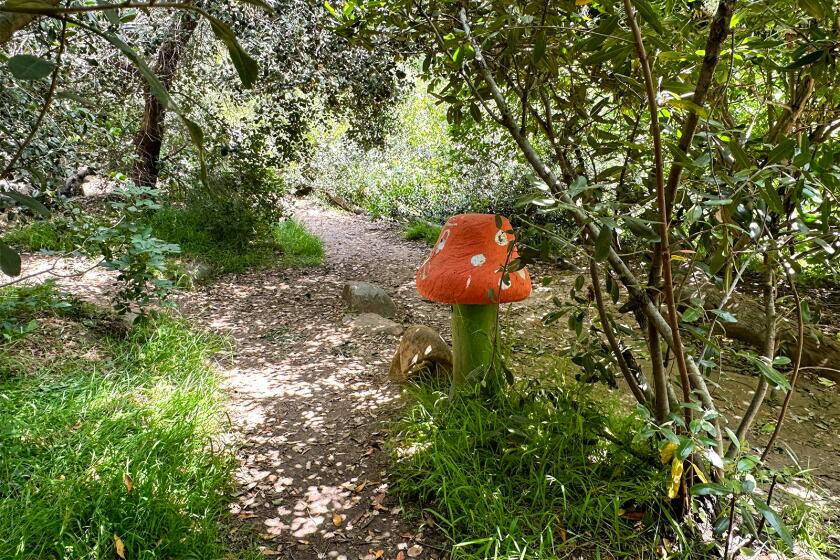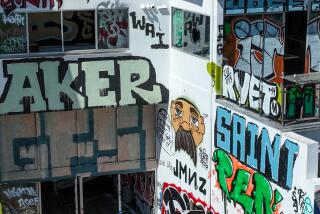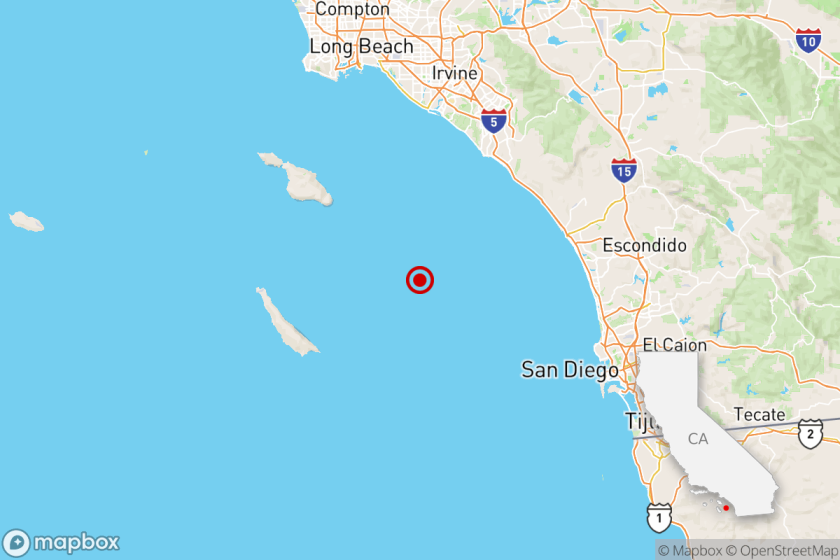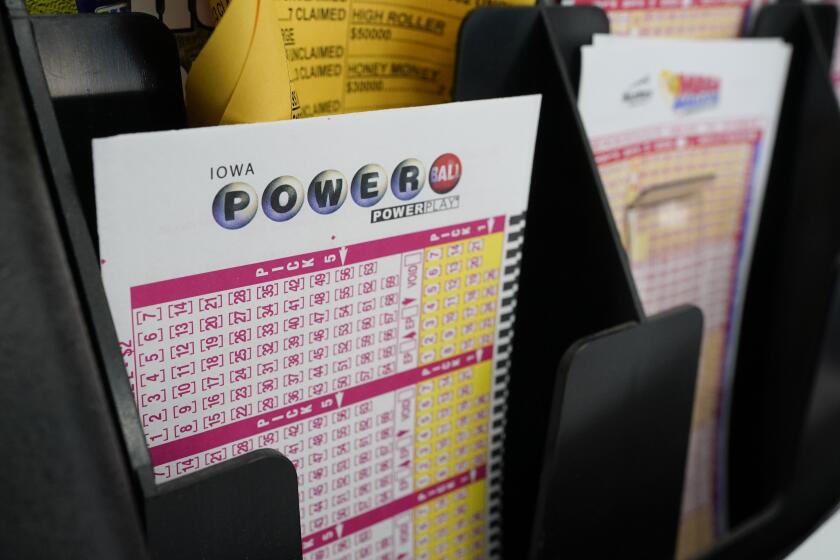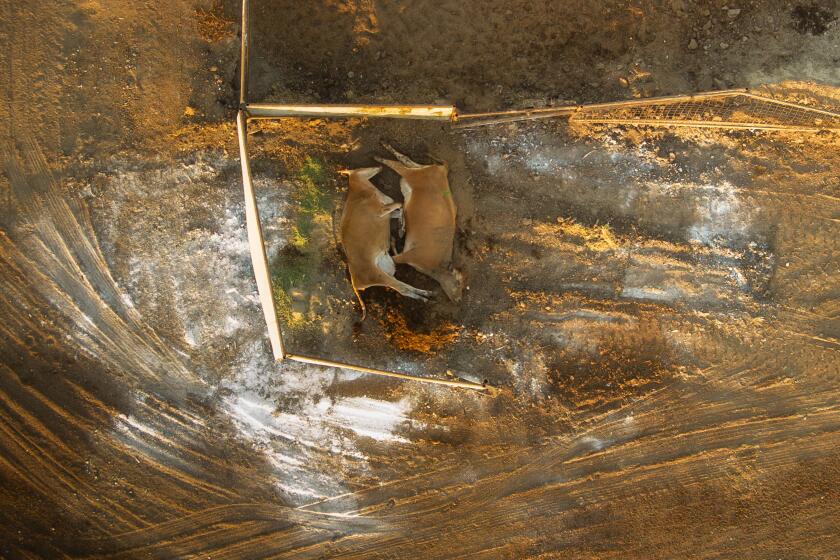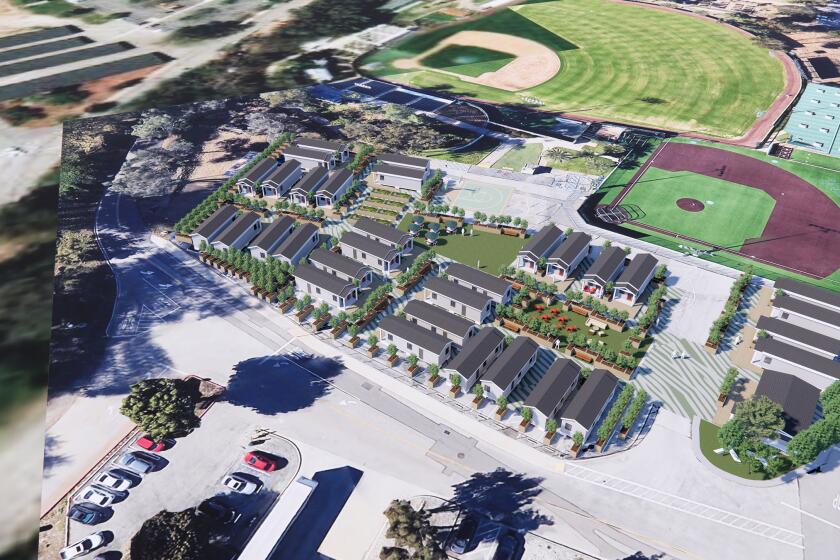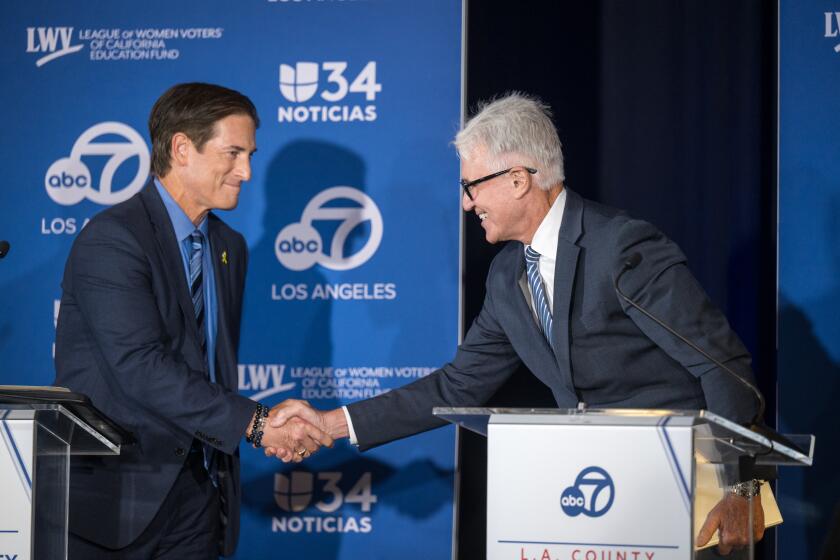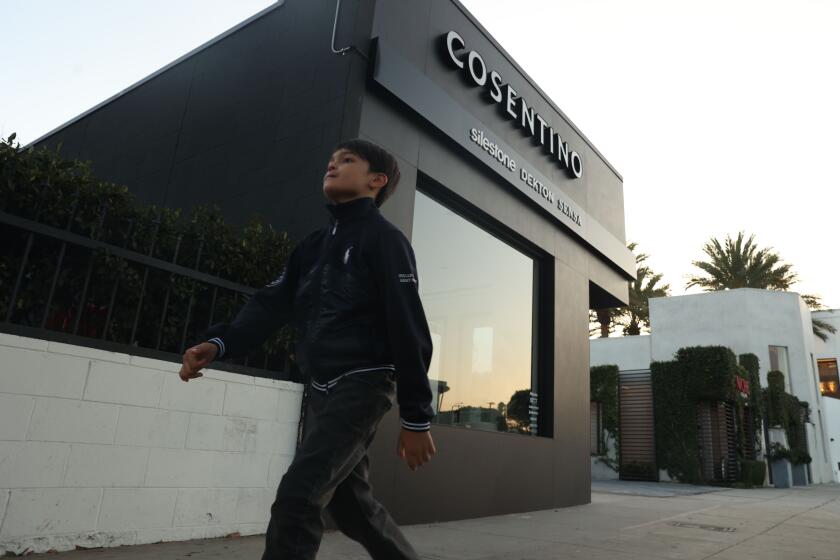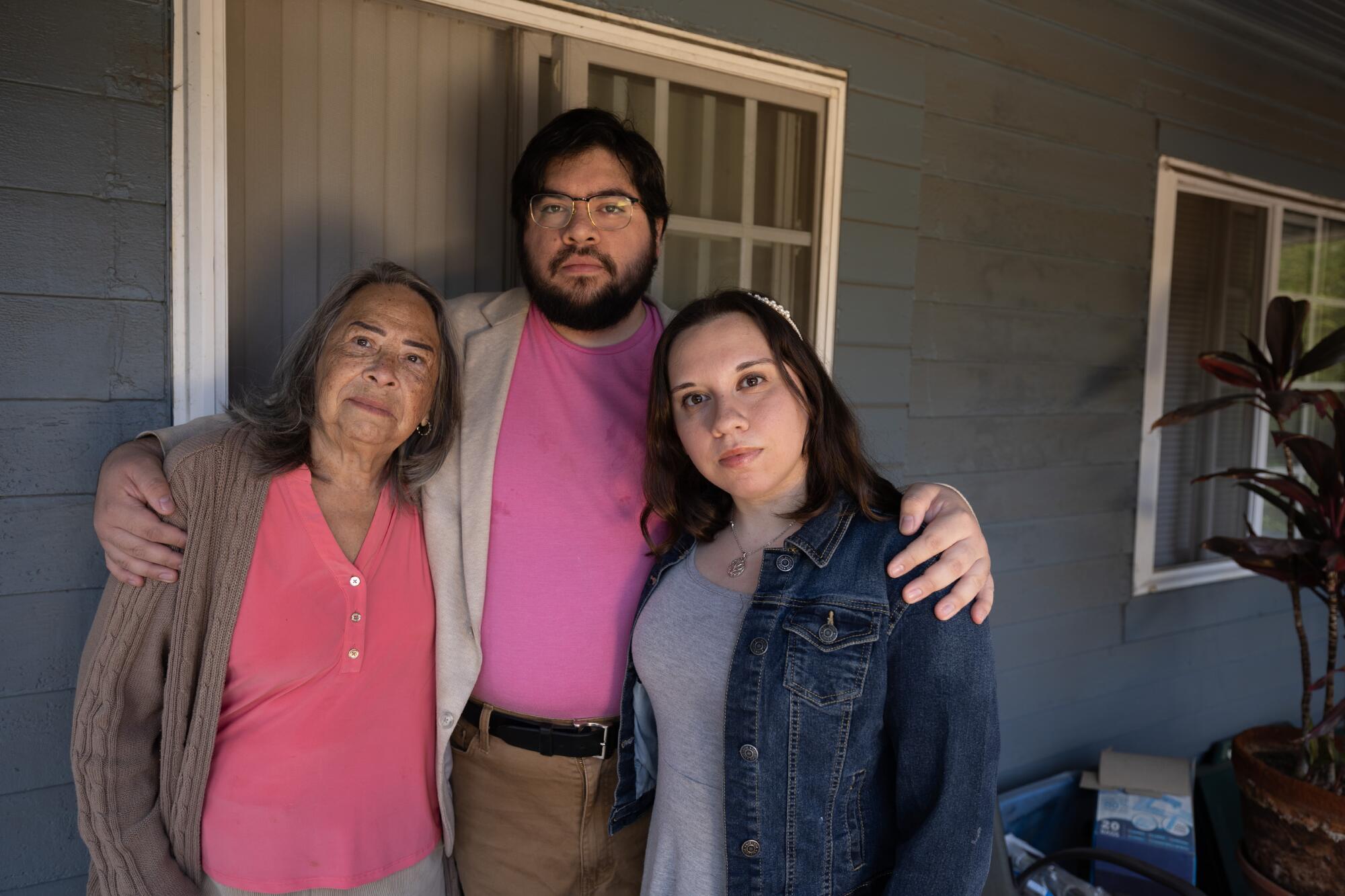
For the young and upwardly mobile hipsters of East L.A., the Frogtown Flea Crawl was the hot new event of their perfectly Instagrammable dreams.
For many residents of the historically working-class Latino community, it was their breaking point.
This fall, the event became an unexpected flash point in L.A.’s debate over gentrification as long-simmering neighborhood tensions exploded and a vocal group of residents ultimately pushed the ultra-popular flea market out of town.
The twice-monthly crawl consisted of around eight minimarkets with clothing, food and jewelry vendors scattered along the L.A. River in the Elysian Valley, which is also known as Frogtown. It was launched in spring 2023 and quickly became one of the trendiest places to be, with the help of social media and vintage-fashion influencers.
By the spring of 2024, the event routinely attracted hundreds of “trust fund hipsters” who created traffic jams, blocked driveways, left behind trash and even urinated in public, according to Elysian Valley Riverside Neighborhood Council President Arturo Gomez.
Residents weren’t simply frustrated by the nuisance created by the crawl, he explained; many also believed that the venture was emblematic of the economic forces that are gradually erasing the tight-knit community they grew up in.
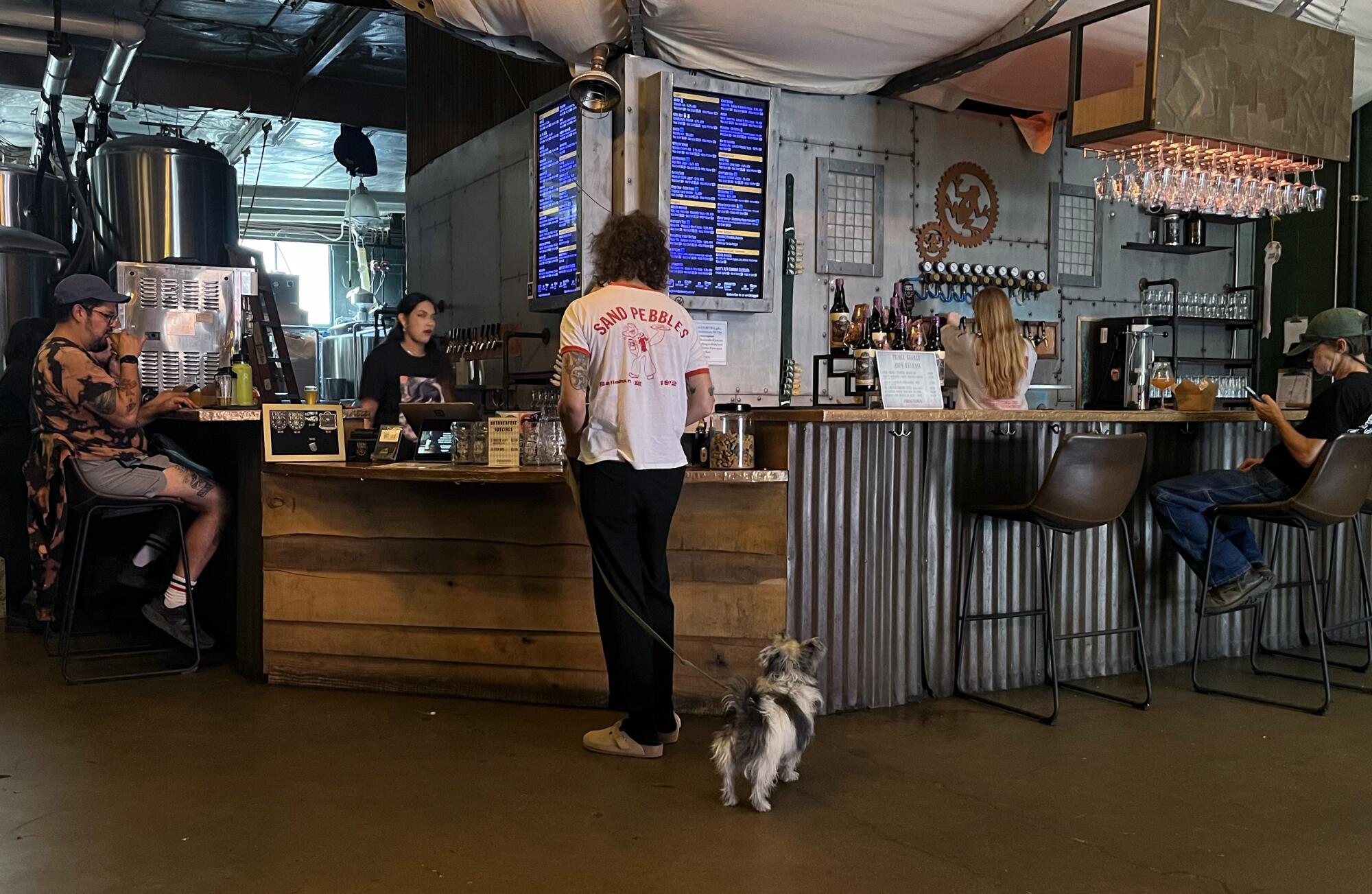
Frogtown “is home to many Hispanic and Latino communities who have cherished this place for generations,” local resident Trisha Herrera said in a recent neighborhood council meeting. “This [flea crawl] is something that aids in gentrification and makes us feel like strangers in our own community.”
Twenty years ago, the Elysian Valley was an industrial working-class community, and Frogtown referred to the name of the local Mexican Mafia-affiliated gang. But now, Frogtown is the moniker of one of L.A.’s hottest new neighborhoods, complete with pricey new housing developments, a vegan bakery, a brewery and an upscale restaurant with an eight-course omakase sushi menu.
An artistic community hub where the L.A. River serves as a sidewalk.
The neighborhood went from being around 60% Hispanic or Latino in 2000 to 43% in 2022, while median household income rose from around $37,000 to $78,000 during that time, according to the U.S. census.
It’s against this backdrop of rising rents and increasing neighborhood density that the flea crawl fracas unfolded.
Gomez said attendees “exhibit an attitude of entitlement that this neighborhood is for people who want to treat it like a playground, as opposed to the people living here just trying to live their lives.”
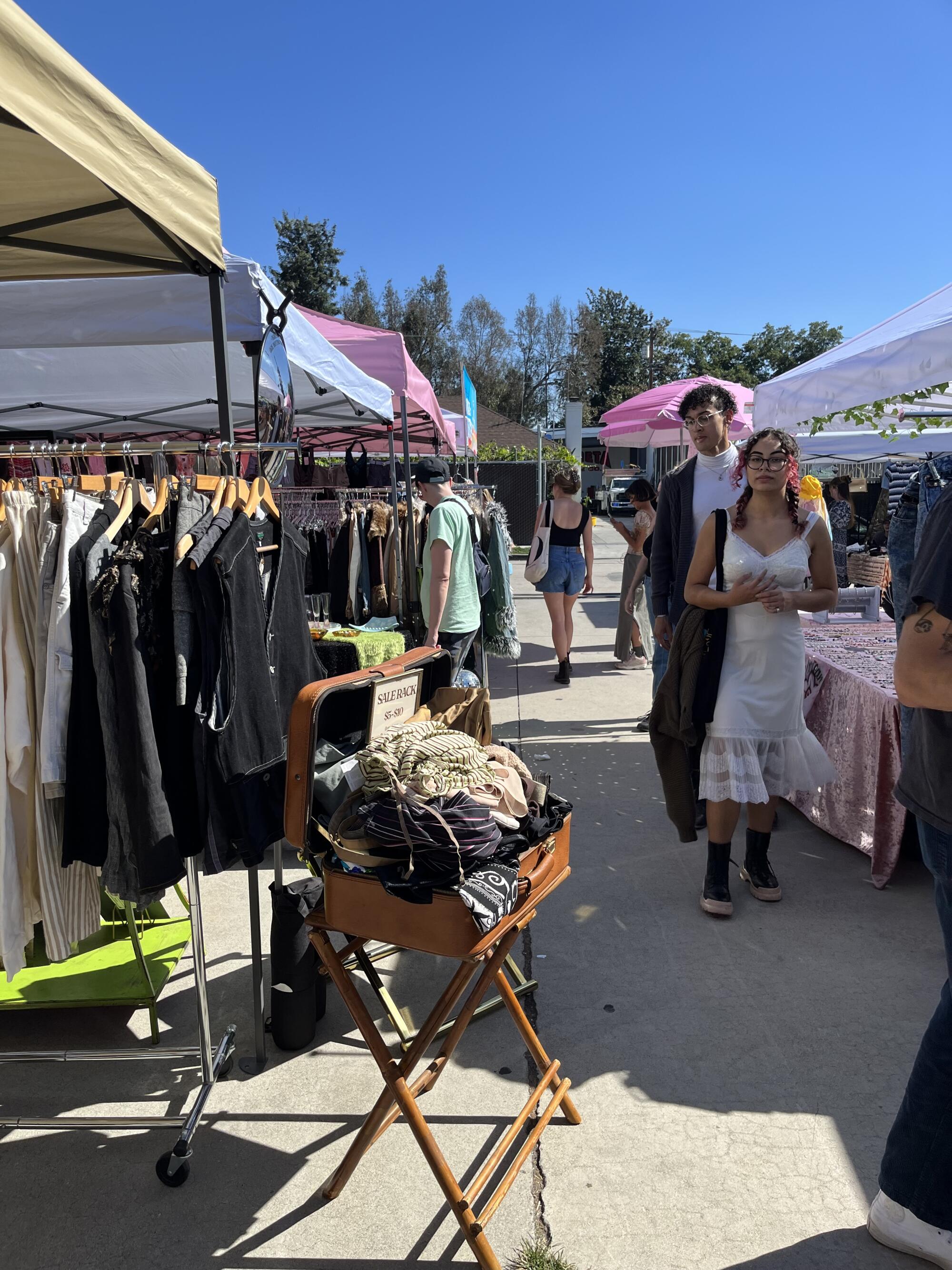
In September, supporters and critics of the event began sparring on social media and in increasingly hostile neighborhood council meetings. One video urging people to boycott the flea crawl received more than 100,000 views on TikTok.
The outpouring of anger prompted event founder Analise Anderson to put a pause on the event in October and try to come up with solutions to address residents’ concerns.
“I apologize to you all again in person for not addressing your feedback sooner. I’m sorry for the impact my actions have had,” she said at an Oct. 9 council meeting. “This has been a major learning experience, and I am committed to improving myself and the market based on your feedback.”
But many residents were not interested in what she had to say.
“I am not trying to mend a bridge,” Emilia Sanchez, lifelong Elysian Valley resident, said at the meeting. “If residents are telling you to get out, I think you need to get out.”
Sanchez said she didn’t think the residential community was a suitable location for a large public event given that it is sandwiched between the L.A. River and the 5 Freeway and has only two roads in and out.
“There are people in this neighborhood that have to wake up at like 3:45 a.m. to go to work, and then they come home at 6, 7 [p.m.], tired as hell, just hoping to get some time with their family, but there is a car blocking their driveway because there’s an event happening,” said Sanchez. “That’s not cool.”
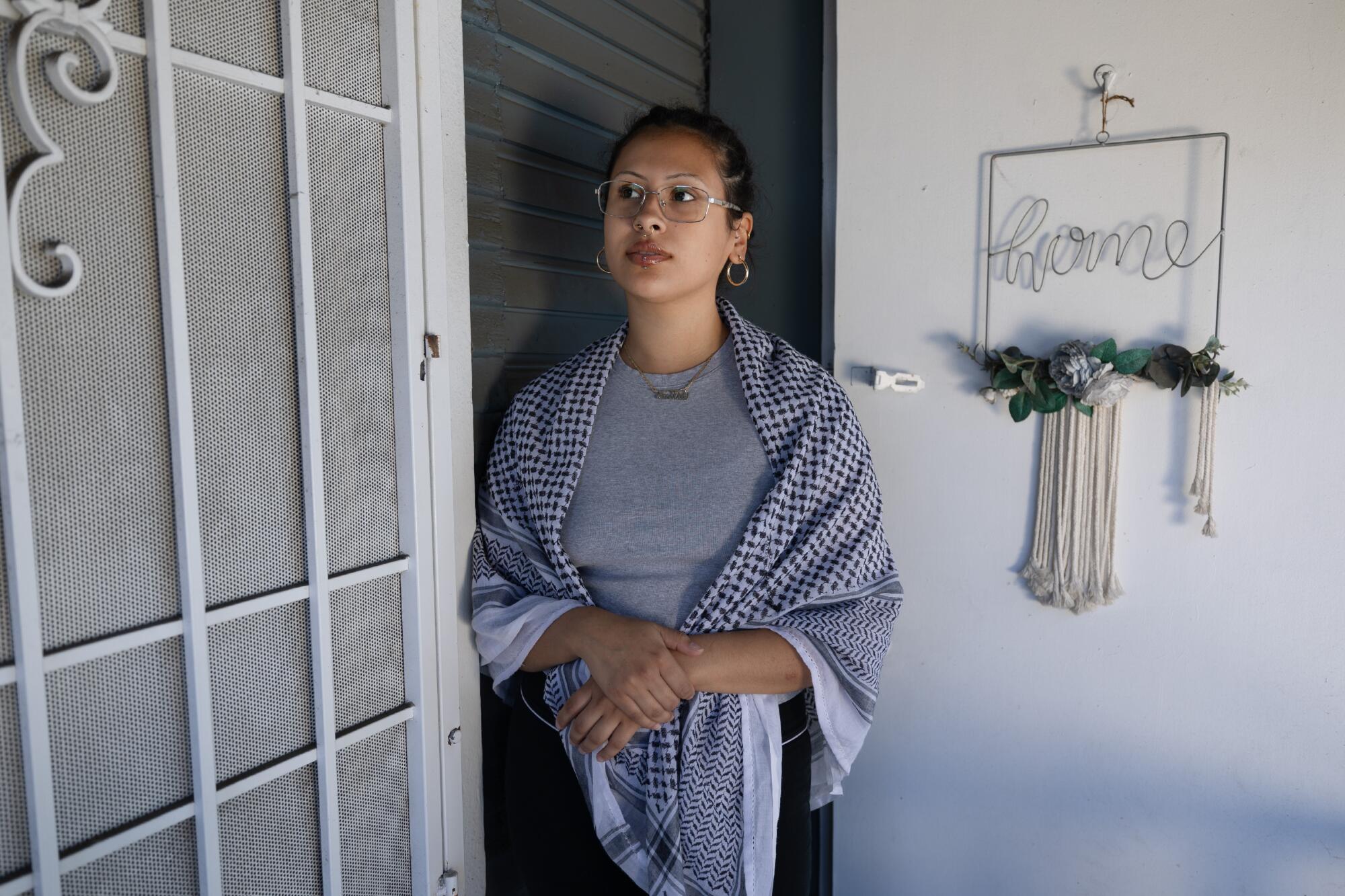
Local resident Lili Sanchez said that while the neighborhood’s newer businesses benefit economically from the crowds the event draws, these benefits are not shared by the greater community.
“I think something that people don’t consider is that as a working-class community, we cannot afford a lot of what gets sold at the flea crawl,” she said. “Even the prices at the local businesses, we can’t afford them.”
Anderson proposed several ideas to mitigate residents’ concerns during the Oct. 9 meeting, including holding the event less frequently, adding traffic signage, hiring trash collection help, encouraging alternative transportation, creating a feedback email and incorporating a charitable element to benefit neighborhood organizations.
She said she takes concerns about gentrification very seriously and was committed to working with residents, businesses and the council on solutions to keep the flea crawl going.
Spoke Bicycle Cafe, a bike shop in Frogtown — located along the Los Angeles River bike path — is working on opening a full-service restaurant with a microbrewery and micro coffee roastery.
Several of her vendors spoke in favor of the event, saying it fosters community and helps small businesses, including many vendors of color who rely on these types of events for their income.
Still, many in the crowd were not moved.
“It really feels like this is a public relations effort,” said local resident Lisette Gomez, adding that Anderson’s proposals were being made in an “atmosphere of distrust.”
Arturo Gomez, the neighborhood council president, said that until very recently, Anderson had not attended any council meetings, made a meaningful effort to work with local nonprofits or tried to address residents’ long-standing concerns.
Last spring, neighborhood council members asked the Los Angeles Fire Department to look into excessive vehicle and pedestrian traffic during the event to ensure it wasn’t creating fire hazards. Anderson referred to these concerns as a “petty neighborhood squabble” in a May email to a fire inspector, and several residents allege that Anderson blocked them on social media when they posted about their concerns with the event.
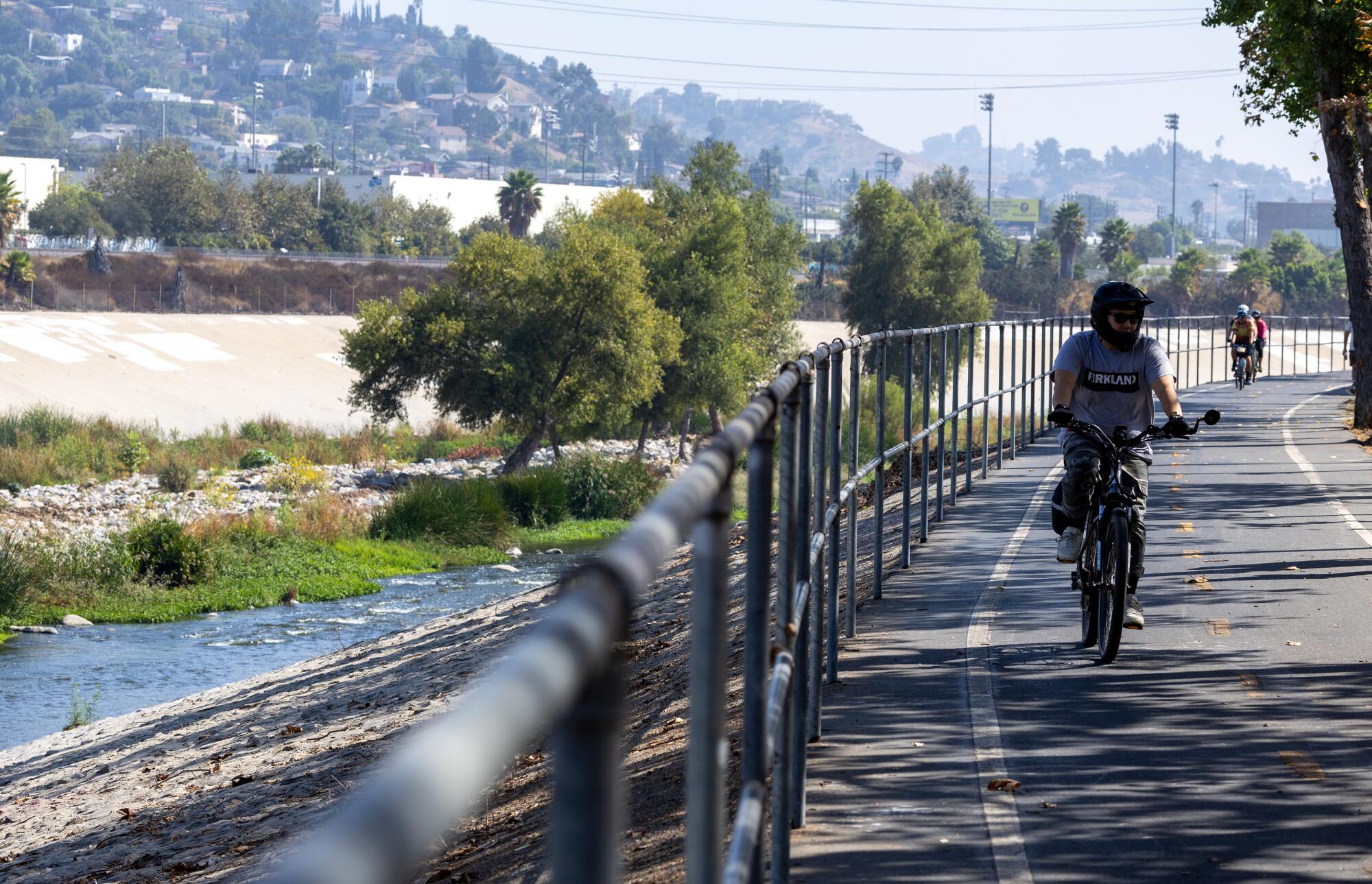
When The Times reached out to Anderson for comment, she responded Wednesday with a statement saying she was canceling the event.
“I’ve decided to conclude The Frogtown Flea Crawl out of respect for residents and their concerns,” the statement said. “It’s important for me to step back and let the Elysian Valley residents lead conversations about what’s best for their changing neighborhood, as they’re the ones most directly affected.”
Los Angeles paid $12,500 to raze a native plant garden in Elysian Park to protect a metal storage shed from fire. Critics ask: Why and what now?
The next day, she made the cancellation announcement official on Instagram and was met with an outpouring of dismay from vendors and loyal event attendees.
“Damn. This one really hurts. I loved this flea so much because it was so different from every other flea in Los Angeles,” vendor Liz Meowdina wrote in the comments. “It’s a shame there wasn’t any compromise.”
Abigail Guziewicz, another vendor, lamented the loss of financial opportunities and friendships, writing that “this space was so much more than a flea market for a lot of people.”
Arturo Gomez, on the other hand, called the cancellation, “a prime example of success where the people and their representatives align to defend their communities.”
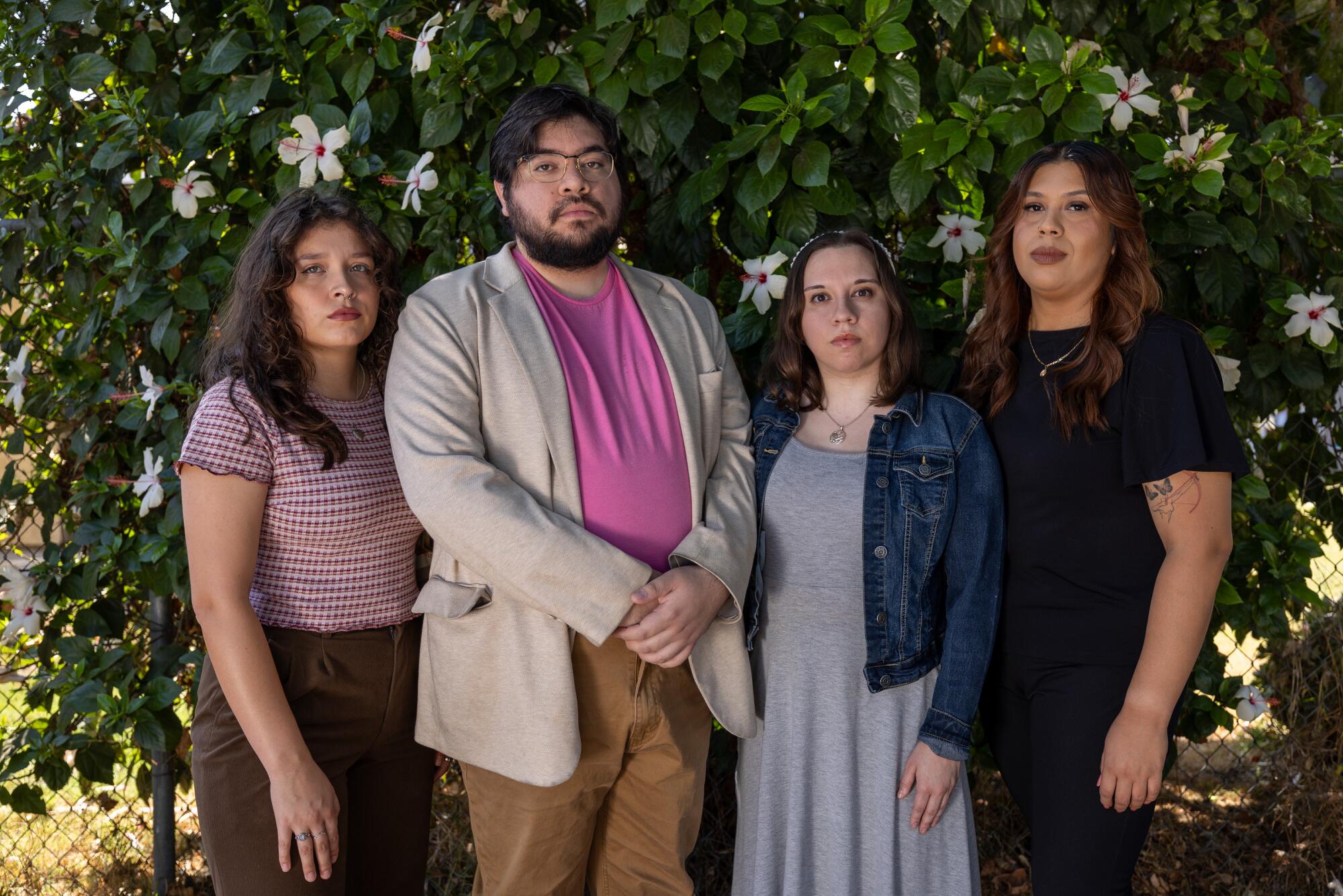
The history of the Elysian Valley dates back to the late 1800s when it was home to several farms. In the 1900s, a number of factories opened in the area, providing jobs to a growing Latino community.
It acquired the nickname Frogtown due to the large population of frogs that used to thrive in the L.A. River and hop about the neighborhood, before they died out in the 1970s.
In part due to river pollution, violence and geographic isolation, the neighborhood did not experience the same levels of gentrification that transformed the adjacent neighborhoods of Silver Lake and Atwater Village in the 1990s and early 2000s. It endured a significant loss of jobs as factories shut down.
In 2013, then-City Atty. Mike Feuer issued a gang injunction in an effort to curtail violence by Frogtown gang members. In 2014, the city began planning a $1.4-billion river revitalization project.
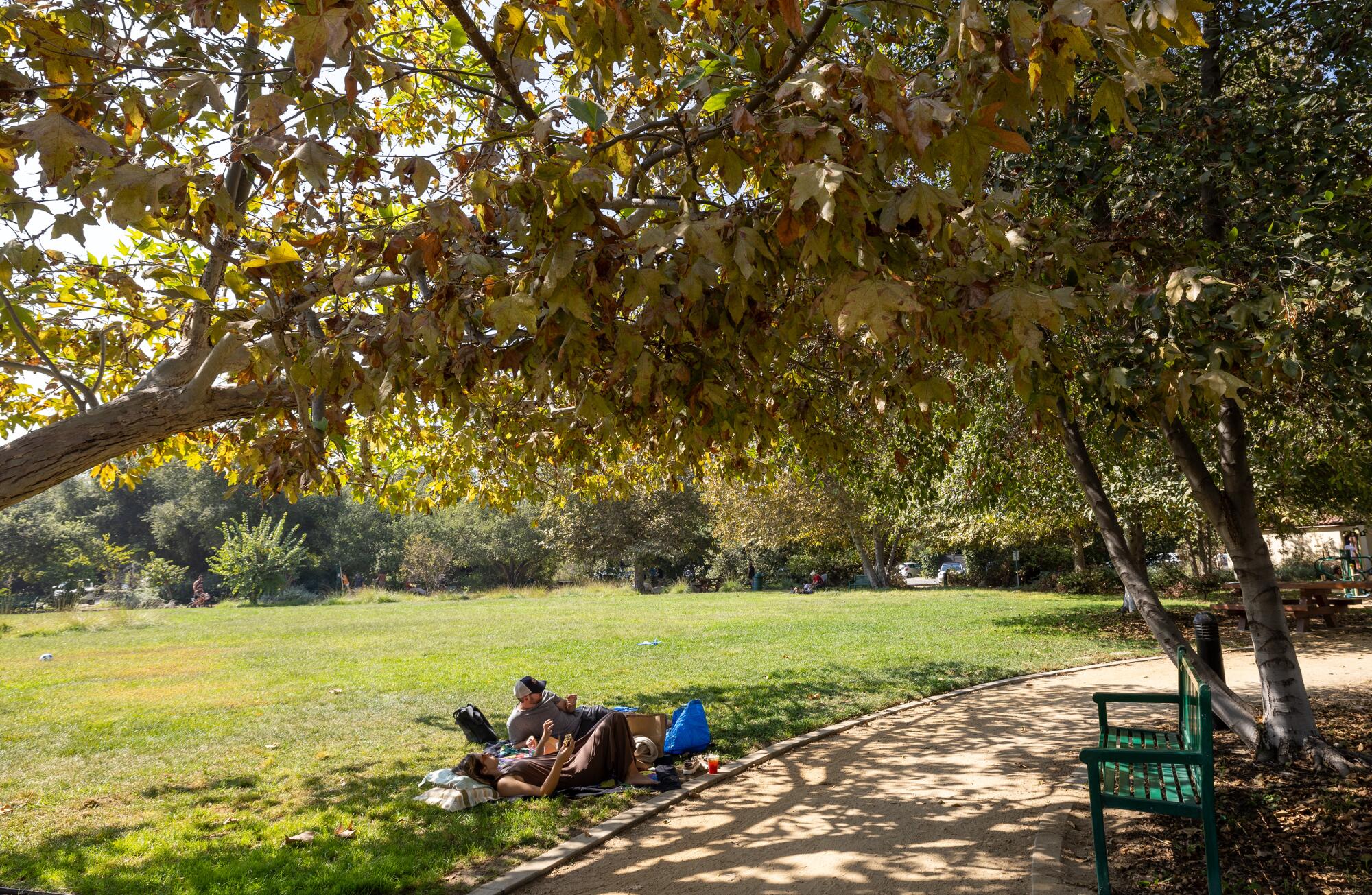
Both proved key turning points for the neighborhood. As safety and cleanliness increased, investment started pouring in, rents went up, and many longtime residents were pushed out.
After watching affordable housing disappear, good-paying factory jobs evaporate and generations of community ties disintegrate, the problems associated with the flea crawl ignited a smoldering fury in some residents. And although some people might see the degree of community anger as an overreaction to a flea market, Arturo Gomez said he has deep sympathy for the community’s frustration.
“At this juncture, I think that people who are seeking to jump in on profits to be made here,” he said, “need to be cognizant of the fact that a lot of us are mourning the neighborhood’s shifts towards a more hip or up-and-coming community.”
More to Read
Subscriber Exclusive Alert
If you're an L.A. Times subscriber, you can sign up to get alerts about early or entirely exclusive content.
You may occasionally receive promotional content from the Los Angeles Times.
